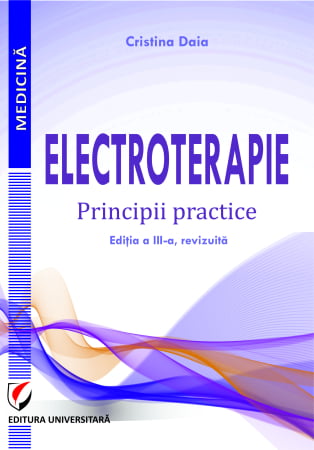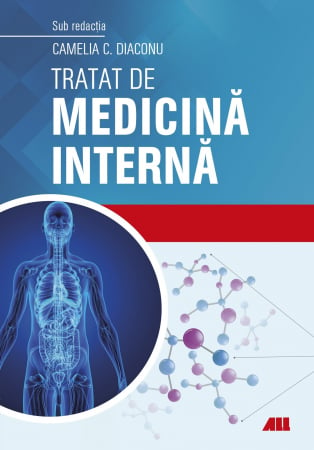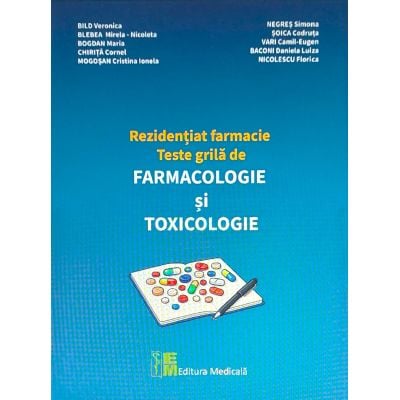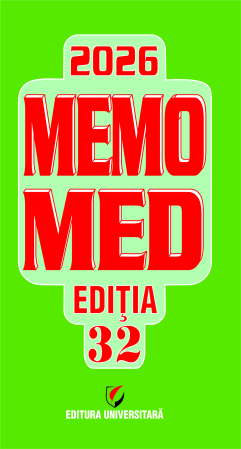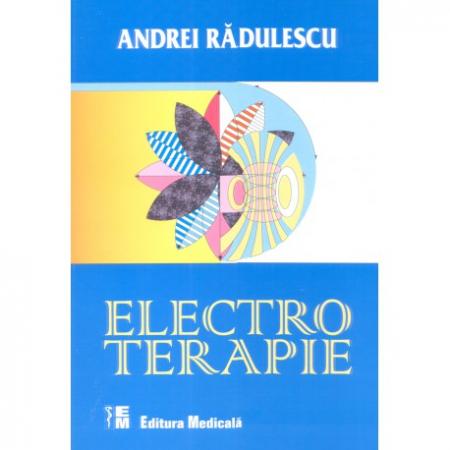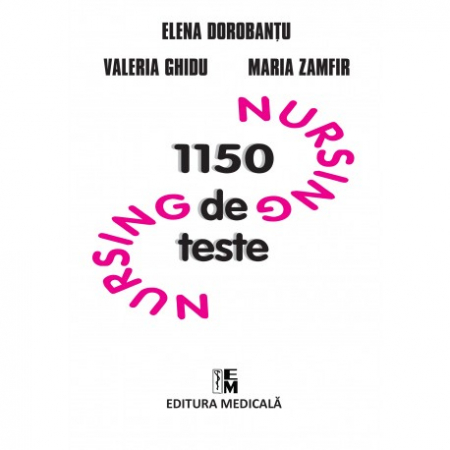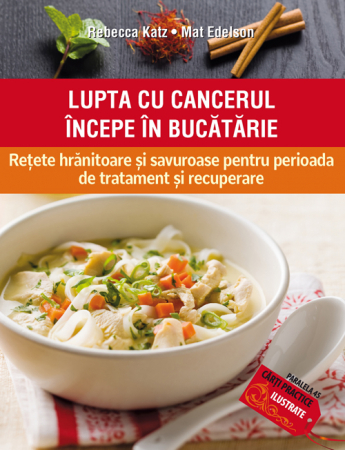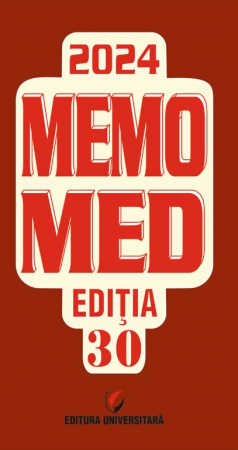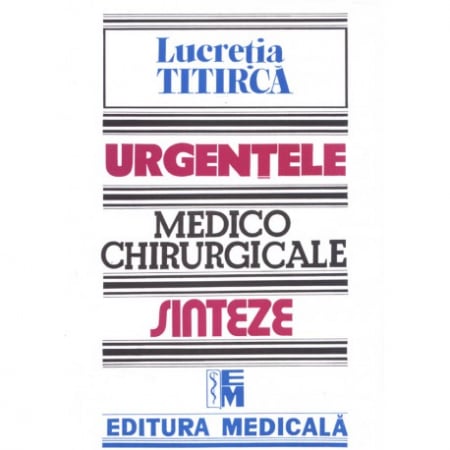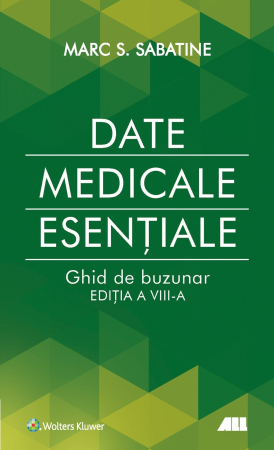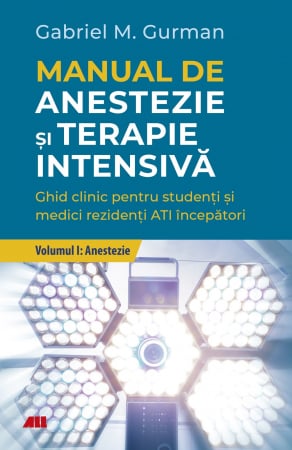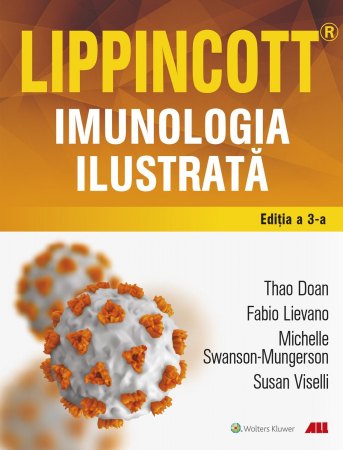Publisher: Editura Universitară
Author: Dumitru Dobrescu
ISBN: 978-606-591-111-6
Publisher year: 2011
Edition: III
Pages: 376
- Description
- Download (1)
- Authors
- Content
- More details
- Reviews (0)
THIS BOOK IS ADDRESSED:
- doctors and pharmacists trained in official faculties, with allopathic formation;
- students in medicine and pharmacy, who want to broaden their horizons of knowledge;
- those who know that Homeopathy is a therapeutic method and are willing to look at it from another angle and accept that it can be a branch of science;
- those who know nothing about Homeopathy and want to get information without preconceived ideas;
- those categories of intellectuals who want to understand something of the complexity and beauty of nature, of the human being and of the relations between nature and man;
- to all those willing to know and possibly accept new things and ideas.
THE BOOK IS NOT ADDRESSED:
- those people, regardless of their training, who consider themselves too smart to waste time reading about controversial things;
- those persons who give verdicts without knowing the substance of the problems;
- those who are not willing to think and accept news.
They would do well not to read the paper and stick to their habits.
But don't blame him!
PHARMACOLOGY is the medical science that studies the reciprocal relationships between drugs and the body, as well as the use of drugs to treat the body's suffering.
According to the laws of nature, there are two types of drugs: allopathic and homeopathic.
Corresponding to them, there are two branches of Pharmacology, allopathic and homeopathic.
SYNONYMS of homeopathic pharmacology.
INFINITEZIMAL PHARMACOLOGY
ECOLOGICAL PHARMACOLOGY
INFORMATION PHARMACOLOGY
NANOPHARMACOLOGY
GENERAL HOMEOPATHIC PHARMACOLOGY studies the phenomena, concepts, general laws regarding the interrelationships between the human body and the homeopathic medicine, under their various aspects.
-
Homeopathic Pharmacology (ecological) - Volume I - General Pharmacology
Download
SINGLE AUTHOR:
- Pharmacodynamics. Practical works, Didactic and Pedagogical Publishing House, Bucharest, 1967 (365 pages).
- Pharmacodynamics, Didactic and Pedagogical Publishing House, Bucharest, 1970 (556 pages).
- General pharmacodynamics. Scheduled education manual, Didactic and Pedagogical Publishing House, Bucharest, 1972 (204 pages).
- Pharmacodynamics. Second revised edition, Didactic and Pedagogical Publishing House, Bucharest, 1977 (588 pages).
- Pharmacotherapy, Medical Publishing House, Bucharest, 1981, (1053 pages). Victor Babes Award of the Romanian Academy. The book has an original structure and contains the chapter "Pharmacoepidemiology", for the first time in the international literature.
- Practical Pharmacotherapy, Medical Publishing House, Bucharest, 1989 (2 vols., 1058 pages).
- Gerontopharmacology, Mondan Publishing House, Bucharest, 1995 (369 pages).
- General homeopathic pharmacology, Minesan Publishing House, Bucharest, 2007 (267 pages) The first book with this title in the international medical literature - General Homeopathic Pharmacology. Edit. Tarus Media, Bucharest, 2008 (271 pages)
- Pharmacologie Homeopathique Générale, Editura Similia, Lyon, 2011.
- Homeopathic Pharmacology, vol. II, Respiratory System, Minesan Publishing House, Bucharest, 2009.
- Return to nature, Editura Universitara Publishing House, Bucharest, 2010.
FIRST AUTHOR:
- Pharmacology. Practical works, IMF Bucharest Publishing House, 1971, (300 pages)
- Combination of drugs. Pharmacodynamic incompatibilities, Medical Publishing House, Bucharest, 1971 (183 pages). The first book of its kind in international literature
- Medicines for the treatment of diseases of the digestive system, Minesan Publishing House, Bucharest, 2000 (320 pages)
- Memomed. Pharmacology Memorandum. Pharmacotherapeutic guide, Minesan Publishing House, Bucharest, 17 annual editions 1995–2011 (each edition with over 1000 pages).
COAUTHOR:
- Pharmacology. Practical works, IMF Publishing House Bucharest 1959.
- Romanian pharmaceutical products, Medical Publishing House, Bucharest, 1964 (776 pages). 12 chapters.
- Recent advances in medical therapeutics, Medical Publishing House, Bucharest, 1965. Chapter "Enzymes in therapeutics".
- Pharmacology. Manual, Didactic and Pedagogical Publishing House, Bucharest, 1965.
- Romanian pharmaceutical products, 2nd revised edition, Medical Publishing House, Bucharest, 1970.
- Medical therapy, under red. Radu Paun, Medical Publishing House, Bucharest, 1982. Chapter "Drug Interactions".
Original contributions of this book / 17
The consequences of the existence of homeopathic pharmacology as a medical science / 19
Preface to the first edition / 23
Preface to the third edition / 27
PART I
INTRODUCTORY CHAPTERS
1. NATURE / 37
2. SCIENCE / 45
3. SCIENCE AND PHARMACOLOGY / 49
3.1. Pharmacology / 51
3.2. Fundamental laws of nature with application in Pharmacology / 52
3.2.1. Unity in diversity / 52
3.2.2. Phase action, antagonist / 53
3.2.3. The principle of equilibrium displacement (Le Chatelier, 1884) / 53
4. FROM CLASSICAL PHARMACOLOGY TO PHARMACO-EPIDEMIOLOGY AND HOMEOPATH PHARMACOLOGY (ECOLOGICAL) / 55
4.1. Classical pharmacology (allopathic) / 57
4.2. Pharmacoepidemiology / 60
4.3. Homeopathic (ecological) pharmacology / 63
5. HOMEOPATHY. SHORT HISTORY. PAST AND PRESENT / 69
5.1. Precursors / 69
5.2. The beginnings / 70
5.3. Christian Friedrich Samuel Hahnemann (1755–1843) / 72
5.4. Descendants / 73
5.5. The situation of Homeopathy at the beginning of the 21st century / 74
6. WHY A HOMEOPATH PHARMACOLOGY? / 77
6.1. The drug / 79
6.2. Pharmacology / 81
6.3. Conditions for the appearance of a Homeopathic Pharmacology / 82
7. HOMEOPATHY. FROM THE “THERAPEUTIC METHOD” TO THE “BRANCH OF SCIENCE” / 83
7.1. Science - definitions / 85
7.2. Defining a branch of science / 86
7.3. The stages of establishing a branch of science / 86
7.4. Pharmacology - branch of science / 87
7.5. Homeopathy - branch of science / 88
7.5.1. Definitions / 88
7.5.2. Homeopathic literature / 88
7.5.3. Homeopathic Pharmacology / 90
7.5.3.1. Clinical practice preceded the advent of homeopathic pharmacology / 90
7.5.3.2. Analytical stage in homeopathic research / 92
7.5.4. Allopathy Vs. Homeopathy / 93
8. HOW THE AUTHOR DESIGNED THIS BOOK
• STRUCTURE OF HOMEOPATHIC PHARMACOLOGY
• BRANCHES OF PHARMACOLOGIES ALOPATA-HOMEOPATA / 99
• COMPLEMENTARITY ALLOPATHY - HOMEOPATHY
8.1. About the book / 99
8.2. Who Should or Could Write a Homeopathic Pharmacology? / 100
8.3. About the structure of the book / 101
8.3.1. Relationships between the body and medicine / 101
8.3.2. Allopathic pharmacology / 103
8.3.2.1. Allopathic medicine / 103
8.3.2.2. Structure of Allopathic Pharmacology / 103
8.3.3. Homeopathic Pharmacology / 104
8.3.3.1. Homeopathic medicine / 104
8.3.3.2. Hahnemann, the forerunner of homeopathic pharmacology / 105
8.3.3.3. The structure of homeopathic pharmacology / 108
8.4. Complementarity allopathy-homeopathy NOT allopathy OR homeopathy, YES allopathy and Homeopathy / 110
9. PERSPECTIVES OF HOMEOPATHIC PHARMACOLOGY / 113
9.1. The abnormality took the place of normality / 115
9.2. Could it return to normal? / 118
9.3. "Alternative medicine" - a big mistake of thinking / 121
9.3.1. Definition of medicine / 121
9.3.2. "Alternative" / 122
9.3.3. No alternative medicine / 122
9.4. The place of Homeopathy in the history of medicine / 123
PART II
GENERAL HOMEOPATH PHARMACOLOGY
10. GENERAL HOMEOPATHIC PHARMACOKINETICS / 131
10.1. Pharmacokinetics of allopathic medicines / 133
10.1.1. Allopathic medicine / 133
10.1.2. Allopathic pharmacokinetics / 133
10.2. Pharmacokinetics of homeopathic medicines. Theoretical aspects / 134
10.2.1. Homeopathic medicine / 134
10.2.2. Homeopathic pharmacokinetics / 136
10.3. Pharmacokinetics of homeopathic medicines. Practical aspects / 138
11. GENERAL HOMEOPATH PHARMACODYNAMICS / 139
11.1. Pharmacodynamic action / 141
11.2. Pharmacodynamic action. Fundamental aspects / 144
11.2.1. The meaning of the action / 144
11.2.2. Potenta / 146
11.2.3. Effectiveness / 151
11.2.4. Selectivity / 151
11.2.5. Latent / 154
11.2.6. Maximum effect time / 155
11.2.7. Duration of the action / 155
11.2.7.1. The remedy / 156
11.2.7.2. Disease / 158
11.2.7.3. The patient / 158
11.2.8. Place of action / 159
11.2.9. Mechanism of action / 161
11.2.10. Type of action / 165
11.2.10.1. Main, secondary action / 165
11.2.10.2. Objective, subjective action / 165
11.2.10.3. Etiotropic, symptomatic-pathogenic action / 166
11.2.10.4. Homeopathic drainage / 166
11.3. Pharmacodynamic action. Application aspects / 168
11.3.1. Drug-dependent factors / 169
11.3.1.1. Chemical structure / 170
11.3.1.2. Dose / 171
11.3.1.3. Distribution in the body / 176
11.3.1.4. Interactions / 176
11.3.1.4.1. Antidotism / 176
11.3.1.4.2. Incompatibilities / 179
11.3.1.4.3. Homeopathic complementarity / 180
11.3.1.4.4. Families of homeopathic medicines / 182
11.3.2. Factors that depend on the body / 185
11.3.2.1. The human type / 185
11.3.2.2. Psychic factors / 185
11.3.2.3. Age / 186
11.3.2.4. Sex / 187
11.3.2.5. Ways of administration / 187
11.3.2.6. Pathological condition / 188
11.3.3. Factors that depend on other conditions / 188
11.3.3.1. Time of administration / 189
11.3.3.2. Food association / 190
12. GENERAL HOMEOPATH PHARMACOTOXICOLOGY / 191
12.1. Allopathic pharmacotoxicology / 193
12.2. Homeopathic Pharmacotoxicology / 194
12.2.1. Pharmacotoxicological effects. Fundamental aspects / 195
12.2.1.1. Generalities / 195
12.2.1.2. Pathogenesis / 196
12.2.1.3. Achieving a pathogenesis „Proving ”/ 199
12.2.1.4. Reliability of pathogenesis / 203
12.2.1.5. Components of a pathogenesis / 209
12.2.1.5.1. Symptoms / 210
12.2.1.5.2. Concomitant / 214
12.2.1.5.3. Alternating / 214
12.2.1.5.4. Modalities / 215
12.2.1.5.5. Causations / 219
12.2.1.5.6. Desires / 220
12.2.1.5.7. Aversions / 220
12.2.1.5.8. Attractions / 220
12.2.1.6. Types of pathogenesis / 222
12.2.1.6.1. Generalities / 222
12.2.1.6.2. Pharmacological interpretation of pathogenesis / 224
12.2.1.6.3. Is classical pathogenesis the only one possible? / 226
12.2.1.6.4. Classical pathogenesis / 232
12.2.1.6.5. Pathogenesis at the cellular scale / 233
12.2.2. Pharmacotoxicological effects. Application aspects / 234
12.2.2.1. Materia medica homeopata / 234
12.2.2.2. Categories of remedies / 235
12.2.2.2.1. Policresti / 236
12.2.2.2.2. Main remedies / 236
12.2.2.2.3. Secondary remedies / 237
12.2.2.2.4. Other categories of remedies / 237
13. GENERAL HOMEOPATHIC PHARMACOTHERAPY / 239
13.1. Pathophysiological bases / 242
13.1.1. Health Vs. disease / 242
13.1.2. Symptoms / 246
13.1.3. Chronic diseases / 247
13.1.4. Mental and emotional state / 248
13.1.5. The concept of land / 249
13.1.6. The concept of sensitive type / 250
13.1.6.1. Typologies based on temperamental-constitutional / 250
13.1.6.1.1. Hippocratic types / 251
13.1.6.1.2. After Grauvogl / 254
13.1.6.1.3. After Nebel-Vannier / 255
13.1.6.2. Homeopathic drug typology / 258
13.1.7. The concept of chronic reaction mode / 258
13.1.7.1. Typologies based on toxic-infectious. Diathesis / 258
13.1.7.1.1. Tuberculosis / 259
13.1.7.1.2. Syphilis / 260
13.1.7.1.3. Sycosis / 260
13.1.7.1.4. Psora / 261
13.2. The place of Pharmacotherapy in all means of treatment / 263
13.2.1. Pharmacotherapy. Definitions. Types / 263
13.2.1.1. Enantiopathy / 265
13.2.1.2. Allopathy / 265
13.2.1.3. Homeopathy / 265
13.2.1.4. Isopathy / 257
13.2.1.5. Allopathy and Homeopathy / 267
13.3. General homeopathic pharmacotherapy. Theoretical aspects / 270
13.3.1. Homeopathy / 270
13.3.1.1. The law of similarity / 271
13.3.1.1.1. The law of similarity on the scale of the whole organism (classical) / 274
13.3.1.1.2. The law of similarity at the cellular and molecular scale / 276
13.3.1.2. The principle of identity / 278
13.3.1.2.1. Isopathic remedies. Nosozii / 278
13.3.1.2.2. Microbial toxins / 278
13.3.1.2.3. Cultures of microorganisms / 279
13.3.1.2.4. Nosozii proper / 279
13.3.1.3. Organotherapy / 279
13.3.1.4. Unicism - complexism - pluralism / 280
13.3.1.4.1. Unicism / 280
13.3.1.4.2. Complexism - pluralism / 280
13.3.2. The evolution of the sufferings treated homeopathically / 282
13.4. General homeopathic pharmacotherapy. Practical aspects. Practical home therapy / 284
13.4.1. Conduct in homeopathic pharmacotherapy / 284
13.4.1.1. Diagnosis / 284
13.4.1.2. Decision on the need to administer drugs (Pharmacotherapy) / 285
13.4.1.3. Establishing the type of pharmacotherapy and at the same time the aim pursued / 286
13.4.1.4. Establishing the priority and scheduling the different types of prescribed pharmacotherapy / 288
13.4.1.5. Similar-remedy / 289
13.4.1.5.1. Methods for determining the similarity / 291
13.4.1.6. How to administer homeopathic medicines / 295
13.4.1.6.1. Determination of potency / 295
13.4.1.6.2. The power-remedy relationship / 296
13.4.1.6.3. Route of administration / 300
13.4.1.6.4. Administration of isopathic remedies / 300
13.4.1.6.5. Potential relationship - pharmaceutical form - dose / 300
13.4.1.6.6. Homeopathic drainage / 301
13.4.1.7. Approximation of treatment duration / 303
13.4.1.8. Efficiency control / 303
13.4.1.9. Dose adjustment / 303
13.4.1.10. Cessation of drug treatment / 303
13.4.1.11. Training the patient (and / or his family) on some important aspects / 304
14. GENERAL HOMEOPATH PHARMACOGRAPHY / 305
14.1. Pharmacography. Definitions / 307
14.1.1. Medicine / 307
14.1.2. Categories of homeopathic medicines / remedies / 308
14.1.2.1. Inorganic (mineral) remedies / 309
14.1.2.2. Organic Remedies / 309
14.1.2.3. Herbal remedies / 310
14.1.2.3.1. Gemotherapeutic remedies / 310
14.1.2.4. Animal remedies / 310
14.1.2.5. Opotherapeutic remedies (organ therapy) / 311
14.1.3. Name of medicines / 311
14.1.4. Medicinal preparations (Pharmaceutical forms) / 311
14.1.4.1. Homeopathic medicinal forms (pharmaceutical) / 312
14.1.4.1.1. Tinctures-mother, Trituratii / 312
14.1.4.1.2. Deconcentrations / 313
14.1.4.1.3. Medicinal (pharmaceutical) forms / 314
14.1.5. Medical prescription (prescription) / 315
15. GENERAL HOMEOPATH PHARMACOEPIDEMIOLOGY / 319
15.1. Allopathic pharmacoepidemiology. Theoretical aspects / 321
15.1.1. The object of pharmacoepidemiology / 321
15.1.2. The epidemiological process of drugs / 322
15.1.2.1. Forms of manifestation of the epidemiological drug process / 322
15.1.2.2. Epidemiological factors of the epidemiological drug process / 322
15.1.3. Anticipation of adverse reactions / 323
15.1.4. Frequency of adverse reactions / 323
15.2. Allopathic pharmacoepidemiology. Practical aspects / 323
15.2.1. Forms of pharmacoepidemiological activity / 323
15.2.1.1. Prophylaxis activity / 323
15.2.1.2. The activity of combating the pharmaco-toxicological phenomena / 324
15.2.1.3. Pharmacovigilance / 324
15.3. Homeopathic pharmacoepidemiology. Theoretical aspects / 324
15.4. Homeopathic pharmacoepiemiology. Practical aspects / 325
ANNEX 1 / 327
ANNEX 2 Proving modern homeopath / 331
ANNEX 3 The drug in the 21st century / 339
BIBLIOGRAPHY / 373
The first edition of this book, published in March 2007, was the first book in the world in that field. It can be considered as representing the foundations and construction of a new science, that of the relations of the homeopathic medicine with the organism, on the foundation laid by Hahnemann for classical Homeopathy.
Being an international premiere and given the particularities of the subject that refers to a topic little known and / or currently controversial, out of ignorance ("Those who praise homeopathy do not always have a more precise knowledge than those who denigrate it" - Pierre Vannier ), I found it useful to include more than the specific content of the new science. That is why I designed an unconventional book and introduced a first part, with introductory chapters, containing statements, arguments, justifications, which would prepare an apperceptive field, conducive to understanding the problems and which would provide many indispensable data of a formative, informative and philosophical nature. The idea proved to be inspired, which is why the introductory part is maintained in the third edition, with some additions.
* * *
After the publication of the first edition of the book, the launch and analysis of the book naturally followed. These have been done on several occasions. With each presentation but also in the meantime, I meditated for a long time on the content of the book and many new ideas appeared, which I noted in order to be introduced in the third edition, which is revised and added, with substantial improvements compared to the first edition.
At the same time, convinced by the obvious analogy between homeopathic and allopathic medicine, I considered it useful to make a closer analysis of their evolution in the last 200 years, since the discovery of homeopathy. I prepared an essay entitled "Medicine in the 21st Century", which I published in Memomed 2009 and republished, revised and added in Memomed 2010 and 2011. The essay is also published in the third edition of General Homeopathic Pharmacology, in the Annex.
I would not have worked hard and persevered to design, develop and publish these texts, if I had not had a firm belief in the truths about the two types of drugs, in their impeccable logic of presentation, in their invaluable value for human health care, their most precious asset, along with life.
At the same time, I never expected my new ideas and concepts to be accepted quickly by many confreres. But I didn't even think that almost four years would pass and my efforts would be practically unnoticed.
All the more so as, in the mentioned materials, it was not a question of discovering a new medicine, which could bring relief to several hundred thousand or millions of patients. And no other news of similar size.
It is about changing the course of the history of medicine throughout the world, and therefore of the health of humanity. It is impossible to estimate the multitude of causes and the weight of the various factors that contribute to maintaining the current situation, in fact, keeping homeopathy out of medicine. Unfortunately, the causes and factors are found in all categories that could have detrimental influences: homeopathic doctors, allopathic doctors, health authorities or other fields, people outside the medical profession. Equally, all these factors are responsible to humanity and history for the immense harm caused to humans.
Homeopathic doctors are guilty of persevering in modernizing homeopathy and entering the medical sciences, preferring to practice a 200-year-old therapeutic method that should have been permanently renewed over time, following the model of allopathy.
From my entire book it is clear that homeopathy must survive, but not anyway, in any case in its current form. Homeopathy must become what it really is, Homeopathic Pharmacology, medical science, analogous to Allopathy and Allopathic Pharmacology. Homeopathy must be rebuilt, but the only way to do this is homeopathic pharmacology. A typical example: all pathogenesis must be restored according to the rules of modern proving (see annex 2) Only in this way will it be possible to eliminate all unreliable data from current pathogenesis, which represents 6–55% of the content contained in current Medical Books.
Allopathic physicians are guilty of immobility in understanding the healing virtues of homeopathic medicines and their remarkable usefulness. Doctors teachers from medical universities and pharmacy in all countries, are guilty of not accepting that homeopathy be taught as a compulsory subject to all students. This would result in the ability of all physicians to prescribe, alike, allopathic and homeopathic medicines, both in the outpatient and in hospitals, guided exclusively by the optimal therapeutic indications for each patient.
People outside the medical profession can afford to judge homeopathy in various ways and in various ways, competing to address all sorts of invectives, obviously without valid justifications.
Often, when I think about the situation of homeopathy in the world, I have the feeling that I am living in reality, what I could call the "War of 200 years". Probably one of the longest in human history, which is still in full swing and which will probably never end if the two sides do not understand and accept that both are the expression of the laws of nature and that their destiny is to complement each other. and to bring together the health services of the population.
In this field, the uncontrolled passions of some people condemned them to never be victorious or defeated, but to fight incessantly, without reaching a real victory.
It is the war between allopathy and homeopathy, started immediately after the discovery of homeopathy. Like all wars, it is absurd, because it is caused by misunderstandings between people based on subjective opinions. In reality, both allopathy and homeopathy exist because they express objective laws of nature, which are immutable and perennial, independent of people's subjective opinions. Without the ability to distinguish unique reality, as is clear from the laws of nature, some people have "their reality," which is irreconcilable with "the reality of others."
* * *
In the four years that have passed since the publication of my first book on Homeopathic Pharmacology, I am constantly experiencing a feeling of helplessness. This is natural because I do not receive the slightest sign of encouragement, but I have to face more and more opposition, some even from those I would not have expected in any way.
In 2008, I participated in the Congress of the International League of Homeopathic Physicians in Ostend, Belgium. A section of the Congress was entitled Pharmacology. I was surprised to learn that most pharmacologists are against homeopathy and that I have not yet met a pharmacologist who will accept and practice homeopathy, as I do.
I was convinced that it was the ideal situation to present my ideas about homeopathic pharmacology. I also had a tangible argument. The English version of my book "General Homeopathic Pharmacology" had just been printed. I sent the book in advance to the president of the congress organizing committee and a book presentation flyer and asked him to schedule me a conference in a plenary session of the congress. It was a unique opportunity for homeopaths from all over the world to learn about innovative ideas and discuss them, as each would consider. What else could be the purpose of an international congress more than the one I requested? To my surprise, I was included in the congress program, in the afternoon of the penultimate day, when at least two thirds of the participants had left for a secondary hall. But the mess didn't stop here. The day before the scheduled date, when I went to hand over the slide stick, I was told that I had been rescheduled to support my work, on the last day, in the smallest room. Obviously, most of the participants had left, so I had an insignificant audience. Even in these conditions I was not spared. The moderator ordered me to respect the time reserved for me, 20 minutes. After me followed a presentation from the host country, which, instead of 20 minutes, was allowed to speak for an hour and a half, a completely minor topic compared to mine.
* * *
I met the same indifference in my country. After the publication of my book, "the first in the world", so an event that does not appear every week or month, I wanted to launch the book in a joint meeting of the Romanian Academy and the Academy of Medical Sciences, I being a member of both understanding to make my personal contribution to asserting their role as high scientific forums. After more than a year of interventions, I managed to have the necessary approvals and to schedule the joint meeting. I personally sent the invitations to all the heads of the departments at the University of Medicine and Pharmacy in Bucharest and to other institutions that might have been interested. On the day of the launch, I was honored only by some of the invited teachers. Even if they were busy, I would have expected them to send one of their subordinates, which did not happen.
Thus, homeopathic pharmacology remained unknown to doctors and teachers.
* * *
I could not help but relate these reprehensible facts, which dishonor ideas and institutions, which should be models of probity and dignity, at the forefront of progress. I made the report to point out that, unfortunately, in the course of the years of human history, most people are so limited and comfortable that they learn nothing from life's experiences. The phenomenon is general in all compartments of society. He met in countless ways, with all the sciences. It has also been found in the science of medicine. Here is the proof. Until the middle of the 19th century, knowledge of known "medicinal substances" (mostly plants and natural substances) was described in books on "Medical Matter" and taught to students by clinicians.
A young graduate of the University of Leipzig, Rudolf Buchheim (1820–1879) had the idea to found a science of medicine, Pharmacology. He tried at several universities in Germany, but was refused, being told that the drugs should be taught to students by clinicians, who also use them in treatments. In 1849, Buchheim, aged 29, managed to set up the first Department of Pharmacology at the University of Dorpat (located in present-day Estonia). Later, despite all the opposition of the medical schools, Buchheim returned to Germany. The best of his students, Oswald Schmiedeberg (1838–1921) was appointed Professor of Pharmacology at the University of Strasbourg in 1872, where he had one of the most valuable schools of Pharmacology in the world.
History repeats itself at the beginning of the 21st century with Homeopathic Pharmacology. When my book "General Homeopathic Pharmacology" appeared in 2007, I sent a letter to the rectors of Romanian universities of medicine and pharmacy, asking them to examine the possibility of introducing the new science, at least as an optional subject. I did not receive any answer, favorable or not, although I was not a 29-year-old, like Buchheim, but a university professor established in the more than 60 years of a fruitful university career. One might remember here the banal and obsolete idea of the teachings of history which has the gift of arousing indifference.
Any comment is useless. It remains for the future to show us what will happen with homeopathic pharmacology.
Dumitru Dobrescu,
Univ. PhD in Pharmacology and Homeopathy,
Corresponding member of the Romanian Academy,
Full member of the Academy of Medical Sciences

6359.png)
![Homeopathic Pharmacology (ecological) - Volume I - General Pharmacology [1] Homeopathic Pharmacology (ecological) - Volume I - General Pharmacology [1]](https://gomagcdn.ro/domains/editurauniversitara.ro/files/product/large/farmacologie-homeopat-ecologic-volumul-i-farmacologie-general-2109-458343.jpg)
